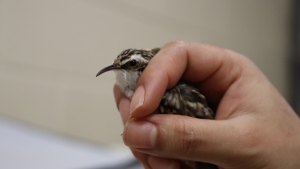As the winter season approaches, millions of birds in Canada are facing a deadly threat. According to recent reports, a significant number of birds die during this time of year due to various reasons such as harsh weather conditions, habitat loss, and collisions with buildings and vehicles.
The Canadian Wildlife Federation estimates that up to 25 million birds die each year during their migration to warmer climates. This is a concerning issue that not only affects the bird population but also has a significant impact on the ecosystem.
So, what can we do to help prevent these tragic deaths? Here are some simple steps that we can take to make a difference:
1. Keep your cats indoors: Cats are natural predators and can pose a threat to birds, especially during their migration. By keeping your cats indoors, you can help reduce the number of bird deaths.
2. Make your windows bird-friendly: Birds often collide with windows, mistaking them for open spaces. You can prevent this by placing decals or stickers on your windows to make them more visible to birds.
3. Support bird-friendly habitats: Many birds rely on specific habitats for food and shelter. By supporting conservation efforts and creating bird-friendly spaces in your own backyard, you can help provide a safe haven for these birds.
4. Reduce the use of pesticides: Pesticides not only harm insects but also affect the birds that feed on them. Consider using natural alternatives or reducing the use of pesticides altogether.
5. Report injured birds: If you come across an injured bird, contact your local wildlife rehabilitation center for assistance. They have the expertise to provide proper care and help the bird recover.
By taking these simple steps, we can all play a part in protecting our feathered friends and preserving the balance of our ecosystem. Let’s work together to ensure that these beautiful creatures continue to thrive in our environment.




